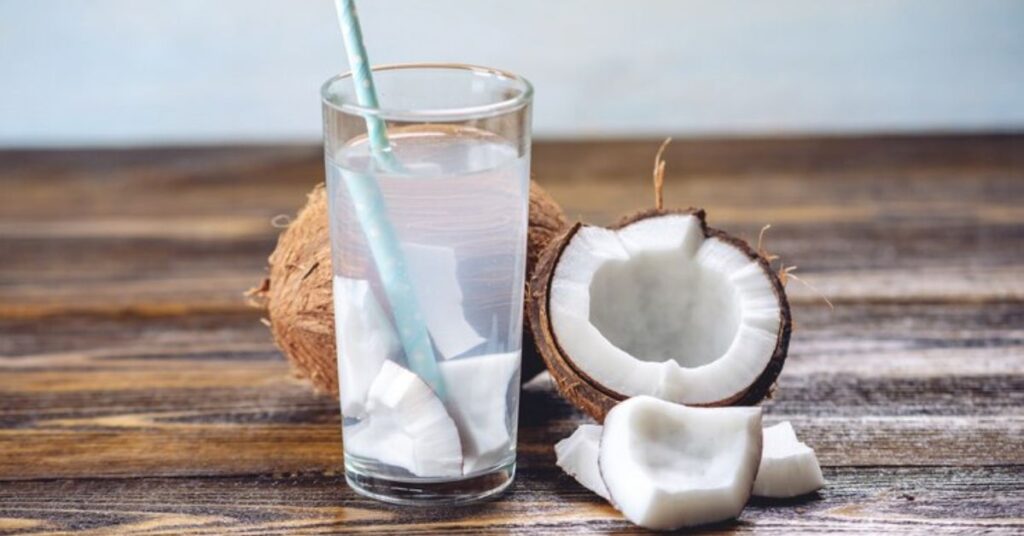Last Updated on November 10, 2023 by Muhammad Sohaib
In the intricate journey of motherhood, the concern over sufficient milk supply is a common thread that weaves through the experiences of many lactating mothers.
As nutritional choices play a pivotal role in this delicate balance, the question arises: Does coconut water hold the key to enhancing milk production?
This article delves into the depths of this query, exploring both the anecdotal claims and scientific insights surrounding coconut water and its potential impact on lactation.
Understanding Milk Supply
Factors influencing milk production
Hormonal balance and infant demand stand as the twin pillars governing the ebb and flow of breast milk. Understanding these factors is crucial to comprehend the dynamics of milk supply.
Common challenges faced by lactating mothers
Lactating mothers commonly grapple with challenges such as low milk supply, prompting a quest for effective solutions.
Dietary considerations also play a crucial role in navigating these hurdles, leading many mothers to explore alternative methods for an optimal breastfeeding experience.
Balancing nutrition and addressing supply concerns become key elements in the complex journey of lactation.
Coconut Water – An Overview
Nutritional composition of coconut water
Electrolytes, vitamins, and minerals compose the nutritional symphony of coconut water, making it a beverage of interest in the quest for enhanced lactation.
Historical uses of coconut water
Beyond its modern reputation, coconut water has historical roots in traditional medicine, hinting at its potential benefits beyond mere hydration.
Nutritional Benefits of Coconut Water

Hydration and its impact on lactation
A well-hydrated body is fundamental to optimal milk production, and coconut water emerges as a natural source of hydration with added nutritional benefits.
Electrolytes and their role in milk production
Delving into the specific role of electrolytes in the lactation process sheds light on how coconut water may contribute to the overall well-being of breastfeeding mothers.
Coconut Water and Hormonal Balance
Potassium content and its influence on hormones
The potassium content in coconut water raises questions about its potential influence on hormonal balance, particularly in relation to prolactin levels crucial for milk production.
Potential effects on prolactin levels
Examining the scientific possibilities, this section explores the hypothetical impact of coconut water on prolactin, the hormone responsible for stimulating milk synthesis.
Balancing Diet for Optimal Milk Production
Importance of a well-rounded diet for lactating mothers
Beyond the coconut water debate, this section emphasizes the broader significance of maintaining a nutrient-rich diet for lactating mothers.
Nutrient-rich foods
Incorporating nutrient-rich foods into your diet is key for supporting lactation.
Focus on foods like oats, leafy greens, salmon, nuts, and dairy products to provide essential vitamins, minerals, and antioxidants that can positively impact both maternal health and the quality of breast milk.
This diverse array of nutrients contributes to a well-rounded and nourishing diet during the breastfeeding journey.
Hydration strategies
Crafting effective hydration strategies is crucial for sustaining optimal well-being. Balancing water intake with hydrating foods and mindful fluid consumption throughout the day ensures a comprehensive approach to staying adequately hydrated.
Tailoring these strategies to individual needs becomes a key element in promoting overall health and vitality.
Incorporating Coconut Water into the Diet

Integrating coconut water into your diet brings a hydrating and nutritious twist. Packed with electrolytes, vitamins, and natural sweetness, this tropical beverage not only quenches thirst but also adds a refreshing element to smoothies, snacks, and meals.
Possible side effects
Acknowledging potential side effects ensures that mothers make informed decisions about incorporating coconut water into their dietary routine.
Alternative Methods to Boost Milk Supply
1. Herbal Supplements: Explore natural options like fenugreek or blessed thistle, known for their potential to stimulate milk production. Consult with a healthcare professional before incorporating these supplements.
2. Power Pumping: Implement a power pumping routine, simulating cluster feeding to signal increased demand to your body, potentially boosting milk supply over time.
3. Galactagogue-Rich Foods: Include foods like oats, fennel, and brewer’s yeast known as galactagogues, believed to enhance milk production. Integrate them into your daily meals or snacks.
4. Hydration Focus: Prioritize optimal hydration by drinking plenty of water throughout the day. Adequate hydration supports overall lactation health.
5. Consultation with Lactation Specialist: Seek guidance from a lactation consultant or healthcare professional to tailor these alternative methods to your specific needs and ensure a well-informed approach.
Expert Opinions
Insights from nutritionists and lactation consultants
Experts in the field lend their perspectives, offering insights that go beyond individual experiences to provide a broader understanding of the potential impact of coconut water on milk supply.
Considerations for individual variations
Recognizing that individual variations play a significant role, expert opinions help guide mothers in making informed decisions aligned with their unique circumstances.
Risks and Precautions
Allergies and sensitivities
As with any dietary choice, understanding potential risks, such as allergies and sensitivities, is crucial for mothers and infants alike.
Potential risks for infants
This section explores the considerations specific to infants, ensuring that mothers are aware of any potential risks associated with introducing coconut water into their diet.
Monitoring for adverse reactions
Encouraging vigilance in monitoring for adverse reactions ensures that mothers can promptly address any unexpected effects on themselves or their infants.
Consultation with Healthcare Professionals
The importance of seeking advice from doctors
Emphasizing the significance of consulting healthcare professionals underscores the responsibility mothers have in making informed decisions about their dietary choices.
Individual health considerations
Every mother’s health journey is unique, and consulting with healthcare professionals allows for personalized recommendations aligned with individual health considerations.
Professional guidance for lactating mothers
The role of healthcare professionals extends beyond diagnosis, offering ongoing guidance to support lactating mothers in their journey toward optimal health and milk production.
Conclusion
Summarizing key points
Drawing together the threads of exploration, the conclusion synthesizes key points, offering a comprehensive overview of the relationship between coconut water and increased milk supply.
Emphasizing the need for balanced approaches
Ultimately, the article concludes by emphasizing the need for balanced approaches, considering multiple factors that contribute to overall lactation health.






